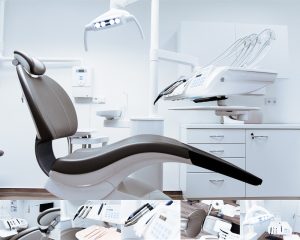 When it comes to dental care, there are so many different things to consider. Most of these decisions depend on what your situation is, what dental procedure you need and what would best take care of any dental issues you may have.
When it comes to dental care, there are so many different things to consider. Most of these decisions depend on what your situation is, what dental procedure you need and what would best take care of any dental issues you may have.
There are many services offered in the dental field, and the options available to you can be confusing. We wanted to break it down for you and make dental care less threatening and help you have the knowledge to make the appropriate decisions when it comes to dental care.
Here are some of the most common dental procedures and more information regarding them to help you make an informed and helpful decision:
Emergency Dental Care
There are several things that can happen that are classified as emergency dental care, here are a few of them and how to react in the best way possible. If your tooth becomes broken, chipped, or cracked; rinse your mouth with warm water and apply a cold compress to your face. Go to the dentist right away. If the tooth was broken or chipped, bring the tooth fragment wrapped in wet gauze or a wet towel.
If your tooth becomes loose due to trauma, call your dentist. For a knocked-out tooth, gently insert the lost tooth back in its socket if possible, holding the tooth by the crown using a clean washcloth. (If the tooth is dirty, first rinse the root but do not scrub it or remove any attached tissues.) If reinsertion isn’t possible, hold the tooth under the tongue and go to the dentist immediately.
If your jaw is broken, first apply ice or a cold compress to the face. Seek emergency help immediately, for this situation a doctor may be your best emergency contact.
Clean the area with a wet cloth and place a cold compress on the area to reduce swelling if your tongue is bitten. If the bleeding persists or if it is excessive, go to your dentist or an emergency center.
Checkups
You should visit your dentist every six months for a cleaning and a checkup where the dentist will inspect your overall oral health, create a treatment plan, and help keep your teeth as healthy as possible.
Periodontal disease
Over 75% of Americans suffer from periodontal disease; most don’t even know it. Periodontal treatments depend on the type of gum disease and how severe it is. If the disease is caught early and no damage has been done to the supporting structures under the teeth, you may simply need professional cleaning. The dental team can give you a comprehensive plan for changing your dental routine and improving your daily oral hygiene.
Tooth extraction
Teeth often need to be removed due to decay, disease, or trauma. Having a tooth removed or “pulled” is called a tooth extraction. Before the extraction, you will be given an anesthetic to reduce your discomfort. There are many risks with tooth extraction, for more information visit this resource for a full explanation of potential issues:
Fillings
Most people need to have some kind of filling during their lifetime. Dental fillings are most commonly used to treat cavities, but they’re also used to repair cracked or broken teeth.
Most dental filling procedures go like the following steps:
1. A topical anesthetic is used to numb the area of treatment
2. Decay is removed from the affected teeth
3. Tooth restoration using a composite or other kinds of filling
4. Bite check to make sure your teeth align comfortably
With this knowledge, you can make the right decisions when it comes to your dental health, no matter what your dental needs are. For more information contact Farhoumand Dentistry today.

